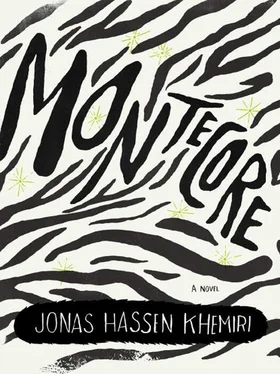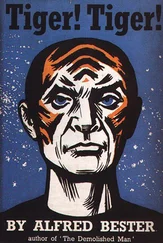Initiate section four as follows:
“Let us be honest. Studio Silvia’s first year of life attracted only a minority of customers. My father’s talent sprinkled some passport photos and a local shoe-factory owner’s advertisements. Sometimes he was engaged by immigrants who had met Swedish women and were now lured into marriages. In order to convince the ever stricter Swedish authorities of their honest intentions, Abbas was commissioned to create historic nostalgia photos from vacations and family gatherings and everyday balcony dinners that had not had time to exist. Abbas documented charter-trip love and New Year’s kisses and picnic smiles, always with a virtuoso camera talent that heaped the photos’ authenticity. In New Year’s pictures one could see sparklers, wine-flecked tablecloths, and a blurry couple in love who showed typical red eyes and sufficiently puffy pale faces. The sandy beach photos were accompanied by umbrella drinks, coolers, and fictive grains of sand in the camera. As the finishing touch my father ordained that the Swedes’ shoulders and noses should be greased with ketchup mixed with milk (which resulted in the stinging red shiningness that characterizes Swedes on charter vacations).
“But these commissions filled neither my father’s photographic talent nor his wallet. The lucrative photo commissions still lay beyond my father’s horizon. What to do? Abbas realized that he must formulate a new strategy in order to reach success … here is how it happened …”
In the next scene, your father wanders his sorrowful steps away from his studio. It is a slushy day in the twilight of the eighties. He notices that the neighborhood around Studio Silvia is beginning to be modified, step by step. More and more of the neighboring buildings’ balconies present shining white satellite-dish ears, which listen in satellitish TV waves from around the world. Children of frequent colors play in the sandboxes. The local tobacco shop where before one could purchase classic pipes and expanded cigarette paraphernalia in polished wood has been replaced by a video rental with a separate corner for horse gambling. Instead of the classic hairdresser salon that was decorated with gliding-around spiral advertising, antique sensational magazines, and brown-and-white photographs, there is now a modern salon with orange-sponged walls and an English title. The pharmacy has disappeared. The post office has disappeared. In place of the paint store a Chinese restaurant has opened its door with “Super Lunch Asian Buffet” for fifty-five crowns.
Your father’s massive steps wander farther toward the commuter train station. On the square, the Swedish alcoholics have received the company of a group of older men with rosaries and an Indian family who sell neon-colored sweat suits and sequined tops.
Your father waves to one of the denim-vest-draped alcoholics and thinks: “Håkan is still here, in any case; not everything is modified.” Abbas’ smile is reduced when he discovers the multitude of posters that have been pasted on the pillars above the escalator to the train station. They say, “Do YOU want YOUR children to face MECCA?” and, “Out with the RIFFRAFF,” and, “Stop the MASS RAPES, stop the MASS IMMIGRATION,” and there are even more slogans, which your father blocks out of his brain and refuses to let himself read.
While waiting for the train into the city, your father catches sight of you. Instead of being in school and doing your lessons you are playing with some friends over by the abandoned commuter rail tracks. At first you’re standing solitarily and discussing loudly with yourself while at the same time scratching yourself frenetically on the stomach and back. Just when you have shouted: “I need a hit!” up pops that skinny Negro girl. With suspicious shoulder glances she delivers you … a stick. You pay her with some leaves, strike a few blows on your own arm, and then place the stick against your arm bend. Then you slowly doze off while your friend inventories your pockets. Then you fly up, laughing, and you switch your roles.
Sighing over his son’s bizarreness, Abbas transports himself into the city. He aimlessly wanders all the streets, which he knows as well as his pockets. Kungsgatan. Up Drottninggatan. Down Odengatan. But his mood is still as cloudy as the gray clouds that roll the sky. His best friend has traveled home. The success of his career far away. The rent for the studio stings his wallet. The family’s economy threatened. A son with bizarre habits who risks being infected by the virus of being an outsider.
Suddenly, at Sveavägen’s intersection with Odengatan, he is roused out of his lethargy by a loud shout:
“Abbas!”
It is your father’s antique companion Raino, who, smiling, waves his hand. Raino’s hairstyle is neatly trimmed, the walrus mustache shaved smooth, the signs of alcoholism reduced. The two photographers greet each other amiably and exchange each other’s résumés while Raino’s leashed dog noses your father’s hands. In his humorous choppy Finland Swedish, Raino asks about your father’s career. Your father tells about his studio and Raino says:
“I conkratchulate you! What is your specialty?”
“I photograph everything!” Abbas smiles.
“Putt … you must specialize yourself. You can’t photokraph EFFRYTHING. Either you are an artist or you photokraph foot. Either you to ats or shoot tocumentaries. Fint your specialty and then work to pecome pest at it.”
“How is it going with your career?” Abbas interpellates, in order to change the angle of the discussion.
Raino details that he has recently reached his success; he has just presented some of his food photographs at a Scan Foods — sponsored exhibition that is touring Europe and in addition he is in love with a twenty-three-years-younger meditation instructor. He notes life as euphoric and their sex life as heavenly. Then he is interrupted by your father, who congratulates him but says that he is suddenly in a big, big hurry, excuses himself, and withdraws in toward the City Library. He stands there in the entry, recovering his breath with his gaze out toward all the gray. Heaped with that bizarrely maximized sorrowfulness that is installed after a rendezvous with an antique acquaintance who is unexpectedly euphoric.
Your father decides to invade the library. He steers his steps toward section four. The smell is wet umbrellas, book pages, bearded stamp men, and female students’ perfume. Abbas parks himself near the photographic section. He pages photographic opuses and tries to feed his inspiration. He reads about photographic giants who also confronted hurdles in the dawns of their careers. Cartier-Bresson. Karsh. Halsman. Before he goes, he returns, of course, to the biography dedicated to his biggest hero of all: Robert Capa.
Your father pages all the photographic motifs he knows by and with his heart. The soldier in the Spanish Civil War who has been captured in the middle of dying. The siege of Bilbao. The eleven photos from D-Day that weren’t ruined by that poor shaky-handed lab assistant.
Abbas sighs his lungs. His vitality is trickling out of him. He thinks of the sixty-one photographs from the invasion of Normandy, lost forever. He visualizes the poor lab assistant. He thinks: Some are created for great achievements and others are not. Perhaps I am one of the latter?
Then his eye is captured by a name: “Endre Ernö Friedmann.” Abbas reads the name again. Friedmann, born 1913 in Hungary’s Budapest. As a povertous Jewish refugee he crossed borders, localized himself in Paris, and tried to start a career as a photographer. He met the disinterest of silence from picture buyers and the establishment. What became his response? In the hour of desperation he formulated a new name, a more adequate name, a name that contained his true ideal.
Читать дальше










